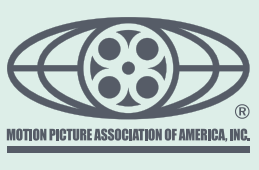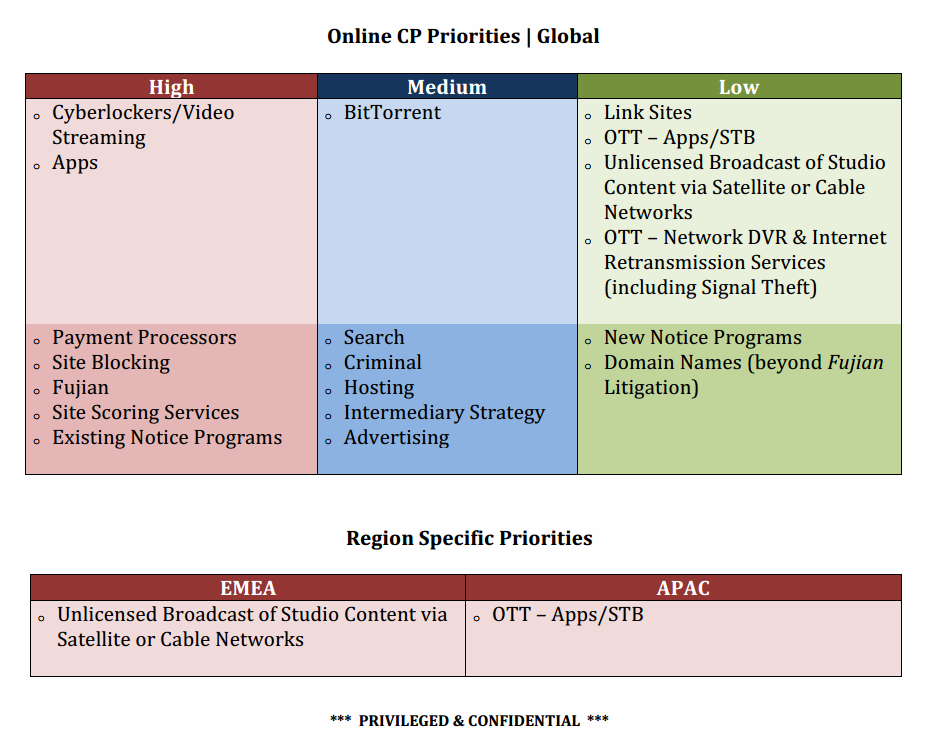 Site blocking has become one of the go-to anti-piracy techniques for the music and movie industries. Mechanisms to force ISPs to shut down subscriber access to “infringing” sites are becoming widespread in Europe but have not yet gained traction in the United States.
Site blocking has become one of the go-to anti-piracy techniques for the music and movie industries. Mechanisms to force ISPs to shut down subscriber access to “infringing” sites are becoming widespread in Europe but have not yet gained traction in the United States.
If the Stop Online Piracy Act had been introduced, U.S. blocking regimes might already be in place but the legislation was stamped down in 2012 following a furious public and technology sector revolt. Behind closed doors, however, blocking proponents were simply waiting for the storm to die down.
TorrentFreak has learned that during 2013 the MPAA and its major studio partners began to seriously consider their options for re-introducing the site blocking agenda to the United States. Throughout 2014 momentum has been building but with no real option to introduce new legislation, the MPAA has been looking at leveraging existing law to further its aims.
Today we can reveal that the MPAA has been examining four key areas.
DMCA
According to TF sources familiar with the plan, the MPAA began by exploring the possibility of obtaining a DMCA 512(j) blocking injunction without first having to establish that an ISP is also liable for copyright infringement.
To get a clearer idea the MPAA commissioned an expert report from a national lawfirm with offices in Chicago, Dallas, New York and Washington, DC. Returned in July, the opinion concluded that a U.S. court would “likely” require a copyright holder to establish an ISP as secondarily liable before granting any site-blocking injunction.
This option might be “difficult” and financially costly, the law firm noted.
Rule 19 of the Federal Rules of Civil Procedure
Rule 19 – ‘Required Joinder of Parties’ – is also under consideration by the MPAA as a way to obtain a blocking injunction against an ISP. In common with the DMCA option detailed above, the MPAA hopes that a blocking order might be obtained without having to find an ISP liable for any wrongdoing.
The MPAA is considering a situation in which they obtain a judgment finding a foreign “rogue” site guilty of infringement but one whose terms the target rogue site has failed to abide by. Rule 19 could then be used to join an ISP in the lawsuit against the rogue site without having to a) accuse the ISP of wrongdoing or b) issue any claims against it.
The same lawfirm again provided an expert opinion, concluding that the theory was “promising, but largely untested.”
Using the ITC to force ISPs to block ‘pirate’ sites
Among other things the United States International Trade Commission determines the impact of imports on U.S. industry. It also directs action on unfair trade practices including those involving patents, trademarks and copyright infringement.
The MPAA has been examining two scenarios. The first involves site-blocking orders against “transit” ISPs, i.e those that carry data (infringing content) across U.S. borders. The second envisions site-blocking orders against regular ISPs to stop them providing access to “rogue” sites.
Again, the same lawfirm was asked for its expert opinion. In summary its lawyers found that scenario one presented significant technical hurdles. Scenario two might be feasible, but first ISPs would have to be found in violation of Section 337.
“Section 337 declares the infringement of certain statutory intellectual property rights and other forms of unfair competition in import trade to be unlawful practices,” the section reads (pdf).
The lawfirm’s August report highlights several potential issues. One noted that an injunction against a domestic ISP would effectively stop outbound requests to “rogue” sites when it is in fact “rogue” sites’ inbound traffic that is infringing. Also at issue is sites that don’t “import” content themselves but merely offer links to such content (torrent sites, for example).
Nevertheless, the general conclusion is that if a clear relationship between the linking sites and the infringing content can be established, the ITC may take the view that the end result still amounts to “unfair competition” and “unfair acts” during importation of articles.
The Communications Act
Details on this final MPAA option involves the Communications Act and how it is perceived by the Federal Communications Commission and the Supreme Court.
The scenario balances on the MPAA’s stance that ISPs have taken the “public position” that they are not “telecommunications services”. When the position of the ISPs and opinions of the FCC and Supreme Court are combined, the MPAA wonders whether the ISPs could become vulnerable.
The scenario under discussion is one in which ISPs are not eligible for safe harbor as DMCA 512(a) “conduits” since the DMCA definition of a conduit is the same as the Communications Act’s definition of “telecommunications service” provider.
Major meeting two months ago
TorrentFreak sources reveal that a large meeting consisting of more than two dozen studio executives took place in October to discuss all aspects of site-blocking. A senior engineer from U.S. ISP Comcast was also invited.
On the agenda was a wide range of topics including bringing on board “respected” people in the technology sector to agree on technical facts and establish policy support for site blocking.
Other suggestions included encouraging academics to publish research papers with a narrative that site blocking elsewhere in the world has been effective, is not a threat to DNSSEC, and has not “broken the Internet”.
Conclusion
In June, MPAA chief and former U.S. Senator Chris Dodd praised pirate site blockades as one of the most important anti-piracy measures, and in August a leaked draft revealed MPAA research on the topic.
The big question now is whether the studios’ achievements in Europe will be mirrored in the United States – without a SOPA-like controversy alongside. While the scale is unlikely to be the same, opposition is likely to be vigorous.
Source: TorrentFreak, for the latest info on copyright, file-sharing and anonymous VPN services.

 This whole week has felt like a crazy rollercoaster of a dream foretelling an impossible future. Has the world’s most resilient torrent site really gone for good?
This whole week has felt like a crazy rollercoaster of a dream foretelling an impossible future. Has the world’s most resilient torrent site really gone for good?




